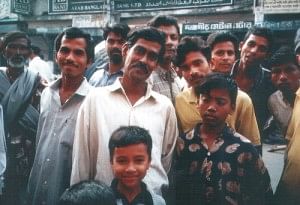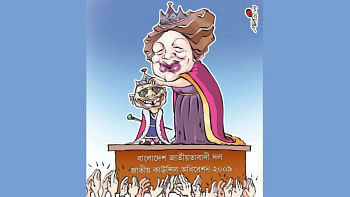Importance of local government

Local government makes people politically concious
The concept of local government is not new to Bangladesh. The British attempted to introduce it as early as 1787. The permanent settlement of 1793 resulted in emergence of a system of landlords who became the local agents of the British government. In 1842, municipalities were established in some provinces of India. In 1870, the Chowkidar Panchayet Act was enacted.
In 1885, the Self-Government Act was passed. In 1907, the Royal Commission on Decentralization was constituted. Village Self-Government Act was enacted in 1919. This resulted in creation of district boards and union boards, which were strengthened in 1935.
In 1956, the number of members a union boards was raised from 8 to 11 to strengthen them. The structure of local administration was demolished with the introduction of Basic Democracy by the then dictator Gen. Ayub Khan in 1958. The Union board was renamed as Thana Council. It was again renamed as Thana Development Committee on April 28, 1972. Ziaur Rahman introduced Gram Sarkar for improving the economic condition of the common people.
Ershad, who issued an Administrative Reorganisation Committee Ordinance on April 28, 1982, abolished the Thana Development Committee in 1982. Under this ordinance, thanas were upgraded and made the center of administration. Later on, another ordinance, named Upazilla and Upazilla Administrative Reorganisation (3rd amendment) Ordinance 1983, to upgrade certain thanas to Upazillas, and a Upazilla Parishad was set up for each upazilla. In June 1989, the Palli Parishad Act was passed for every village.
During 1991-2006 we heard political statements from time to time for strengthening local government. In reality, no progress could be seen due to opposition of the party/parties in power, because law makers do not like to give up power to the local government as they feel that thereby they may lose their influence on the people of their constituencies. Thus, we are not hopeful of strengthening local government under an elected government.
Our only hope is the CTG, which has successfully separated the judiciary from the grip of the executive. The statement of the CA for strengthening local government to take its services to people's doorsteps and bringing transparency and accountability in all sectors is encouraging and inspiring.
The preliminary work to take up the task of strengthening local government has already been done by a high-powered committee headed by Dr. Shawkat Ali. It recommended, inter alia, a three-tier local government system, and outlined qualifications for aspirants to local government bodies. It also suggested setting up of an independent commission for effective decentralisation and removal of bureaucratic tangles.
The local political systems are usually more important than the national, insofar as they enable the citizens to have a feeling of contact with the government, and act as a training ground for future statesmen and politicians. Experience of administration on local level can teach someone about political action, which helps him to better understand the needs of the wider community. In this way, local politics affords invaluable opportunities, and gives an insight into wider political activity and political justice. Local political venues are important arenas for political education in general.
Our future statesmen and politicians, on becoming familiar with the world of politics and political affairs, can stand up to pressure and the tides of national fortune. They develop a political reliance, which is a critical national asset. This, in turn, helps the smooth political development of the country. Within the smallest political unit, the people get a better chance to know the art of politics, which ultimately brightens the prospect of their political leadership at the national level. Thereby, the cause of democracy is also served.
Local politics is very important for the political development of Bangladesh, particularly to strengthen its base for democracy. By making people politically conscious, it enables the people to establish a democratic society and administrative system. Local politics is different from national politics. In Bangladesh politics, the influence of political opportunists is prominent because the national level politicians are benefited by local level leaders who are usually elected on the strength of their wealth and muscle power, and not for their love and respect for the people.
A.B.M.S. Zahur is a former joint secretary.

 For all latest news, follow The Daily Star's Google News channel.
For all latest news, follow The Daily Star's Google News channel. 



Comments